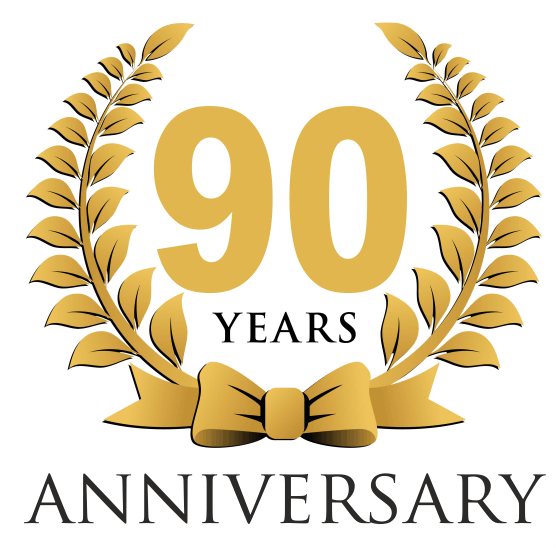Mastery of Management Graduate Diploma on
International Relations
This Program provides a wide ranging but concise examination of all the key themes, trends and issues of contemporary international relations and world politics.
This Program explores the full spectrum of theoretical perspectives and debates, ranging from the historically dominant traditions of realism, liberalism and Marxism to traditionally marginalised postcolonialism and green theory. It encourages students to critically reflect on the context of the field and its development and to appreciate the importance of viewing international relations theories from truly representative perspectives. Each chapter theory includes a case study that bridges theory and practice by showing how theory can be used to explain real world political dilemmas, whilst accompanying case study questions encourage analytical thinking and help students understand the value of applying theory to concrete political problems.
ALSO: SPECIAL OFFER - valid until 30 September 2025:
The Special Offer is a free extra course on “Strategy, Quality & Contemporary Business Concerns”. (This Special Offer is only valid for new enrolments; the one requirement is that you must provide your personal email address to the College when you enrol.)
- Summary of major topics
- What is included
- Related courses
- Study & Career development
This Program explores the full spectrum of theoretical perspectives and debates, ranging from the historically dominant traditions of realism, liberalism and Marxism to traditionally marginalised postcolonialism and green theory. It encourages students to critically reflect on the context of the field and its development and to appreciate the importance of viewing international relations theories from truly representative perspectives. Each chapter theory includes a case study that bridges theory and practice by showing how theory can be used to explain real world political dilemmas, whilst accompanying case study questions encourage analytical thinking and help students understand the value of applying theory to concrete political problems.
Summary of content:
1. International Relations and Social Science
- Introduction: meta-theory, ontology, epistemology, positivism
- Philosophy, social science, historical overview
- Positivism and postpositivism
- Rationalism and reflectivism
- Types of theory, theory and practice
2. Classical Realism
- Community, order and stability
- The balance of power
- Realpolitik, interest and justice
- Change, modernisation, order
3. Structural Realism
- Defensive and offensive realists, the offence-defence balance
- States, power, security, deterrence
- Causes of great power’s war
- Power shifts and war
4. Liberalism
- Global trends in armed conflict
- Global trends in governance
- International conflict
- Democracy, international trade, international organisations
- Power, hegemony, and liberalism
5. Neoliberalism
- International regimes, rationality
- Interdependence and hegemonic stability
- Barriers to international cooperation
- International institutions
- World Trade Organization
6. The English School
- Realism versus idealism
- International society
- Complex governance
- International society, justice
7. Marxism
- Social relations in process, agents, capitalism
- Political sphere and economic sphere
- Globalizing capitalism and imperial power:
- Global power and hegemony
- Geopolitics
8. Critical Theory
- Morality and political economy
- Empirical challenges and institutional norms
- Communication
- Critical reflexivity
9. Constructivism
- The social construction of reality
- Constructivism and rationalism
- Social being, mutual constitution, social facts, social cognition
- Language and rules, reasons and causes
10. Feminism
- Gender in IR: knowledge and power
- IR feminist theories: liberal feminism, critical feminism, feminist constructivism, feminist poststructuralism, postcolonial feminism
- Gender, security, and global politics, structural violence, the myth of protection
- Understanding economic insecurity
11. Poststructuralism
- Knowledge, subjectivity, identity and power
- Interdisciplinary context, theory of truth
- Poststructuralism and the political context
- Language, reality, performance, discourse, materialism
- Discourses of world politics
12. Postcolonialism
- Postcolonial theory: debates, preoccupations, commitments
- Orietalism, eurocentrism
- Postcolonial international relations: moderization theory
- Narrating postcolonial IR
13. Normative International Relations Theory
- History and influences
- Cosmopolitanism and communitarianism
- Consequentialism and deontology
- Ethical assumptions: norms, moral inclusion, obligations
14. Green Theory
- International political economy
- Ecological security, sustainable development, environmental justice
- From environmental issues to green theories, ecological modernization
- Rationalist accounts and green alternatives, challenges
15. International Relations Theory and Globalization
- Assessing what is at stake in the globalization debate
- Sovereignty, regionalization
- The extent and consequences of globalization
16. IR as a Contemporary Discipline
- IR and political science
- Social and intellectual structure of IR
- Change and uncertainty
- Models of IR over time, the present and future
Your CIC Fee includes:-
- Your enrolment/registration with Cambridge International College, and your own high-quality, professionally produced and illustrated comprehensive Core Study Publication and supplementary Study Publication.
- Study & Training Guidance with advice on how to study to achieve success and gain top results.
- A detailed, professionally written Examinations Guide which includes expert advice, guidance and tips on how to prepare for, approach and answer Examinations in order to achieve the best results.
- Test Questions, (which can be used as ‘Past Papers/Questions’) and Model Answers for them, and additional Exercises, Tests and Activities.
- The Final Examination sat under Invigilation/Supervision in your own area - full details, guidance and explanation of how your Examination will be arranged and how Invigilation is conducted will be provided when you register. Note, CIC arranges Examinations in over a hundred countries worldwide for thousands of Members every year; it is a flexible, straightforward process and will be arranged when YOU are ready to write your Examination. (An Assignment Option via email is available instead of an Exam in exceptional circumstances which prevent you being able to sit an Exam, such as due to a new outbreak of 'Covid-19' (Corona) virus or a similar pandemic; or due to an outbreak of war or hostilities in your area.)
- The prestigious Cambridge International College Mastery of Management Graduate Diploma when you pass the Final Examination.
- Your personal page on CIC’s Member Services website with access to results, despatch details, advice and guidance, and more: www.cambridgeinternationalcollege.co.uk
- Regular information and news including: Newsletters with details of special offers and new Programs and much more; and Competition Forms; by email and post.
- Everything needed for your Study & Training success is included in the CIC Fee.
Additionally:
Further Study and Training Advice, and Assistance is available before, during and after CIC Study & Training; Members may ask CIC’s team of experienced Consultants for advice on further study and Programmes to improve career prospects and advancement.
CIC’s experienced and helpful staff can assist with numerous special requests, such as reference/recommendation letters and transcripts, and more, by post and email.
- International Relations & Global Politics Diploma 12 months (flexible)
- International Business & Trade Diploma 12 months (flexible)
- International Business & Administration (EBA) EBA: Executive Business Administration 3 years (flexible)
- Commerce & Administration EBA: Executive Business Administration 3 years (flexible)
- Logistics, Materials & Supply Chain Management (including Transport) Diploma 12 months (flexible)
This Program is particularly for people involved in politics, diplomacy or government, or who are invloved in international development, global trade or human rights. Whether looking to start or to develop a career in one or more of these areas, this detailed and highly explanatory Program provides the insights and knowledge needed for success.
A wide range or related studies are also generally available from a wide range of instituions worldwide should further studies be required - see the "Related Courses" section for suggestions – which include the ‘wider’ syllabus ABA & Baccalaureate Programmes and the 'Double Award' EBA & BBA Bachelor degree Programme, and the 'Double Award' EMBA & MBA degree Programme. You are welcome to ask the College for advice, and of course you can see details of these Programmes on this website.

Sign up to this course
Payment Options:
Duration & Assessments
The standard Study Period is one year (12 months) but the actual time taken to complete the Mastery of Management Graduate Diploma is flexible
READ MORE »To gain your prestigious high-level Mastery of Management Graduate Diploma you must sit and pass a written Examination/Assessment. Full and clear details about this are provided to you, including in your Study & Training Guide, after you have enrolled. The clear information explains when, where and how your Examination/Assessment will be arranged - it is a simple and straightforward process, which hundreds of thousands of other Members have successfully gone through. If you study well, and follow the advice in the CIC Study & Training Guide, then you should be able to achieve a good result and obtain your respected Graduate Diploma!
**During the "Covid-19" (Corona) virus pandemic, Members may opt to take an Assignment (home-based course work) instead of an Examination to complete the Program.
(See the College Prospectus, or the “Frequently Asked Questions” section on the “Contact Us” page of this website, if you would like more information.)
Result
A professional graduate level qualification ideal for high-level responsibility in leadership, management, business, development and related career areas.

